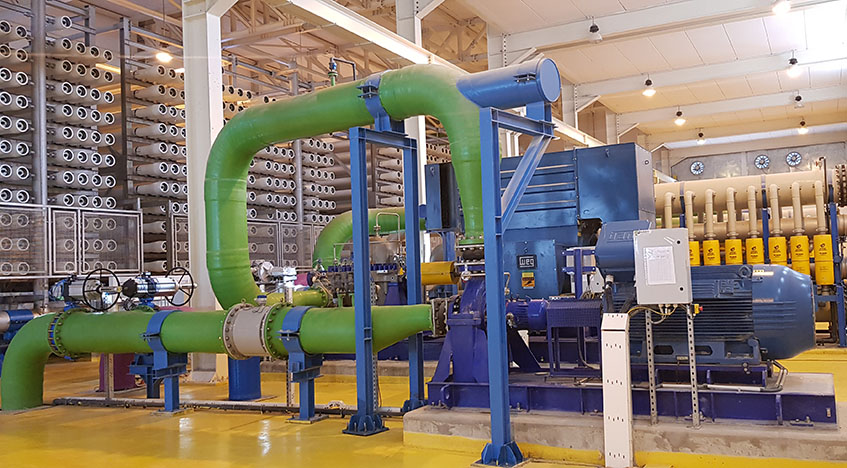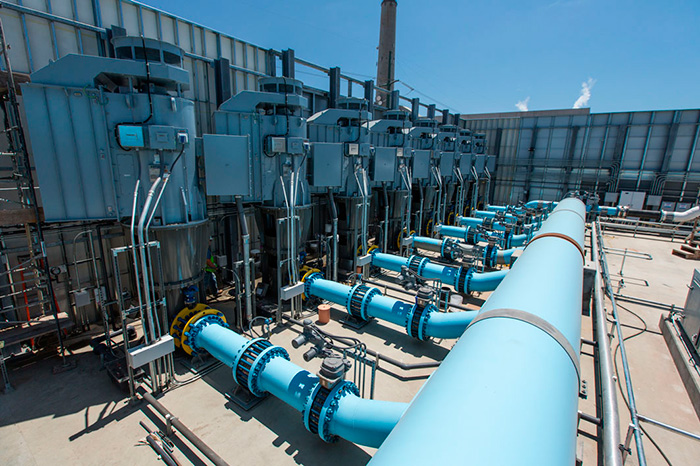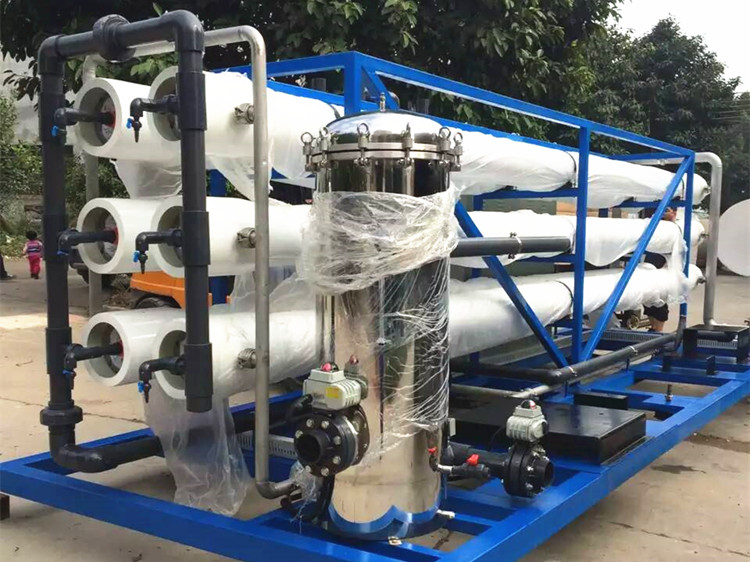Can solar power power a desalination plant?
As a renewable energy source, solar energy has attracted much attention in the field of seawater desalination. The following will discuss the application of solar energy in seawater desalination, its technical feasibility and related challenges.
1. Application of solar energy in seawater desalination
Solar energy has broad application prospects in seawater desalination. Solar energy can directly drive thermal desalination systems, converting solar energy into thermal energy through solar collectors, providing the required energy to evaporate and condense seawater, thereby achieving desalination. In addition, solar energy can also indirectly drive photovoltaic cells, convert solar energy into electrical energy, and supply physical and chemical seawater desalination systems, such as reverse osmosis systems, to realize the seawater desalination process.
2. Technical feasibility
The technical feasibility of solar energy in the field of seawater desalination has been widely verified. Continuous advancements in solar collector and photovoltaic cell technology have made the application of solar energy in desalination more efficient and reliable. Many countries and regions have established solar-powered sea water desalination plants and achieved remarkable results. Therefore, from a technical perspective, it is feasible for solar power to power the seawater desalination plant.
3. Related challenges and prospects
Although solar energy has great potential in desalination, it also faces some challenges. First, the instability of solar energy resources may affect the stable operation of seawater desalination plants. Secondly, building a solar-powered seawater desalination plant requires high investment costs, and under climatic conditions in some areas, solar energy may not be able to meet all-weather power needs. In addition, technological innovation and cost reduction of solar-driven desalination systems are also directions that need attention in the future.

What is the actual application of solar energy in sea water desalination plants?
1. Analysis of practical application cases
By analyzing some seawater desalination plant cases where solar energy has been applied, we can understand its actual application. These cases cover sea water desalination plants in different regions and different scales, from which the application effects and economics of solar energy in seawater desalination can be drawn.
2. Technical challenges and solutions
The application of solar energy in seawater desalination plants faces some technical challenges, such as unstable solar resources and low efficiency of photovoltaic cells. In response to these challenges, researchers and engineers are actively looking for solutions to improve the reliability and economy of solar energy in seawater desalination.
3. Feasibility analysis and future prospects
By conducting a feasibility analysis on the actual application of solar energy in seawater desalination plants, its applicability and economy in sea water desalination plants in different regions and different scales can be evaluated. In the future, with the further development and maturity of solar energy technology, its application prospects in the field of seawater desalination will be even broader.

What are the economic and environmental benefits of solar energy in seawater desalination plants?
1. Economic analysis
Whether the application of solar energy in sea water desalination plants is economical is one of the important factors that determine its promotion and application. By analyzing the costs and benefits of solar energy applications, its economics can be assessed and compared with conventional energy supply methods.
2. Environmental benefit assessment
As a clean energy source, solar energy's application in sea water desalination plants has significant environmental benefits. By reducing the use of fossil energy and reducing greenhouse gas emissions, environmental pressure can be reduced, the ecological environment can be protected, and sustainable development can be achieved.
3. Comprehensive evaluation and promotion suggestions
Finally, the economic and environmental benefits of solar energy in seawater desalination plants are comprehensively evaluated, and promotion recommendations are put forward. Through policy support, technological innovation and market promotion, we will further promote the application of solar energy in the field of seawater desalination and contribute to the sustainable development of human society.

As a clean and renewable energy source, solar energy is of great significance in its application in the field of seawater desalination. By in-depth understanding of its application, economics and environmental benefits in sea water desalination plants, we can better promote the application and development of solar energy technology and make positive contributions to solving water resources problems and protecting the environment.




